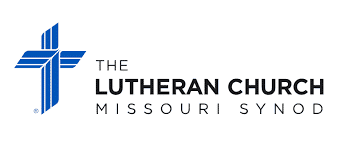#DailyDevotion Are You Praising The LORD Forever?
Psalm 30 8I called to You, O LORD; I pleaded with my Lord: 9“What’s the good of my being killed and going down to the grave? Can the dust praise You or tell how faithful You are?
David reminds the LORD how he had called upon Him in faith and had pleaded with Him for help and salvation. Based on that, he further reasons with the LORD, what good would it be if his blood is spilled on the ground. If he dies he won’t be able to go into the temple to give praise to the LORD. There seems to be some debate whether or not David or any of us would be praising the LORD in heaven. If dead, David would be in Sheol, the abode of the dead. Looking back into the Old Testament from the New, it would appear that it was divided into two places, one of torment for the souls who did not trust the LORD until the day of judgment and a place of rest for those who did. Many in the early Church believed all the saints in Sheol were scooped up into the presence of God when Christ died, descended into Hades (the Greek equivalent of Sheol) and opened up heaven to all believers, having defeated sin, death and the devil. David wants to praise the LORD in the flesh, at the temple. He believes the LORD should want that also. Of course, that is only a good argument if indeed you currently and have in the past praised the LORD for all His benefits to you habitually.
10Listen, O LORD, and be merciful to me! O LORD, help me!
Now it is assumed the LORD had already listened, been merciful and helped David, as he is using this psalm to rededicate his home while had been defiled by his son Absalom. This type of talk of reaching into the past from the present is apparently used in the Psalms. We should nevertheless learn from David to pray as he has prayed. We want the LORD to listen to us when we pray. So we pray that He will. We can invoke Jesus’ promises concerning prayer when we do so. In Matt. 7 Jesus says, 7“Ask, and it will be given to you. Search, and you will find. Knock, and the door will be opened for you. 8Anyone who asks receives; anyone who searches finds; and anyone who knocks, the door will be opened for him.” So we plead with our Father to be merciful and to help us, trusting in the promises of Jesus. Indeed, in our Sunday communion services we corporately pray, “Lord have mercy upon us. Christ have mercy upon us. LORD have mercy upon us,” joining those persons in the Gospels who pleaded for His mercy and were heard and helped. We pray it in our private prayers as well. All we ever need is the LORD’s mercy and help. There is no greater praise of the LORD than looking to Him for help and mercy, trusting He will do it.
11You have changed my weeping to dancing; You have taken off my sackcloth and fastened joy like a robe around me. 12Now my heart can sing to You and not weep. O LORD my God, I will praise You forever.
The psalm concludes with thanks and praise for the LORD had listened and given David mercy and help. When we receive and see the LORD’s answer to our prayers, what do we do? Do we at least give Him thanks? Do we praise Him before anyone who will listen? David says he will praise the LORD forever. Indeed, whether in the flesh or apart from it in heaven we give thanks and praise to the LORD for all His benefits to us. We should though take care to give Him thanks and praise today, lest we forget and others forget where our help comes from.
Heavenly Father we give you thanks and praise for all your benefits to us. We thank you for our daily bread, for all the times you diverted disaster from us and for all the times you delivered us from whatever trial we have been experiencing. Continually give us faith that we may join David in praising you forever. In Jesus’ name we pray. Amen.


